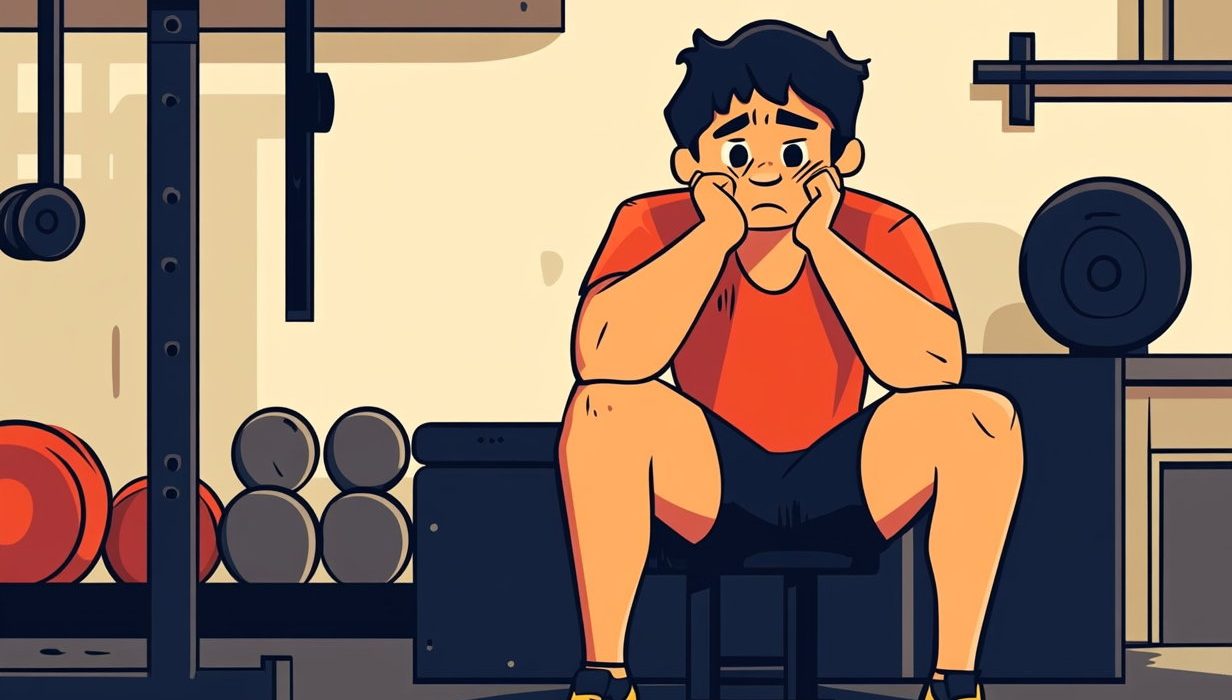Fitness enthusiasts discover surprising factors sabotaging their muscle-building efforts in the gym
Many dedicated gym-goers find themselves frustrated after months of consistent heavy lifting with minimal muscle growth to show for their efforts. The answer often lies beyond the weight room, in overlooked factors that can completely derail muscle-building progress.
1. Sleep deprivation is sabotaging your gains
Your muscles don’t actually grow during workouts—they grow during recovery, particularly during deep sleep phases. When sleep falls below seven hours nightly, the body produces less growth hormone and increases cortisol levels, creating an environment hostile to muscle development.
Poor sleep quality also impairs protein synthesis, the process by which muscles repair and grow stronger after training. Even with perfect nutrition and training, chronic sleep deprivation can reduce muscle protein synthesis by up to 18 percent, making gains nearly impossible despite intense efforts.
2. Protein timing matters more than total intake
While hitting daily protein targets receives plenty of attention, the timing and distribution of protein consumption throughout the day plays an equally crucial role. Consuming large amounts of protein in just one or two meals doesn’t optimize muscle protein synthesis.
The body can only utilize approximately 25-30 grams of protein per meal for muscle building purposes. Excess protein gets converted to glucose or stored as fat rather than contributing to muscle growth. Spreading protein intake across four to six meals maximizes the muscle-building response throughout the day.
3. Hydration levels directly impact muscle function
Dehydration, even at mild levels, significantly impairs muscle performance and recovery. When muscle cells lack adequate water, they cannot effectively transport nutrients needed for growth and repair processes.
Water comprises roughly 76 percent of muscle tissue, making proper hydration essential for optimal muscle function. Dehydration also reduces blood flow to working muscles, limiting the delivery of oxygen and nutrients while hindering the removal of metabolic waste products that can interfere with recovery.
4. Stress hormones are blocking muscle development
Chronic stress elevates cortisol levels, creating a catabolic environment where the body breaks down muscle tissue for energy rather than building new muscle. This stress response can stem from work pressure, relationship issues, financial concerns, or even excessive training without adequate recovery.
High cortisol levels also interfere with testosterone production, further hampering muscle growth potential. Managing stress through meditation, adequate rest periods between intense training sessions, and lifestyle modifications becomes crucial for optimizing muscle development.
5. Training frequency isn’t matching recovery capacity
Many enthusiasts believe training muscle groups once weekly provides sufficient stimulus for growth, but research indicates most muscles recover and are ready for additional stimulation within 48-72 hours. Training each muscle group twice weekly often produces superior results compared to once-weekly protocols.
Conversely, some individuals train too frequently without allowing proper recovery time. Muscles grow during rest periods, not during workouts themselves. Finding the optimal balance between training stimulus and recovery time varies among individuals based on factors like age, training experience, and lifestyle stress.
6. Micronutrient deficiencies are limiting progress
While macronutrients receive significant attention, micronutrient deficiencies can severely limit muscle growth potential. Magnesium deficiency impairs protein synthesis and muscle contraction quality. Zinc deficiency reduces testosterone production and slows tissue repair processes.
Vitamin D deficiency, particularly common in individuals who spend limited time outdoors, can reduce muscle strength and size. Iron deficiency limits oxygen transport to working muscles, reducing training capacity and recovery ability. A comprehensive approach to nutrition extends beyond protein, carbohydrates, and fats.
7. Progressive overload isn’t actually progressing
Many lifters believe they’re progressively overloading their muscles when they’re actually maintaining the same relative intensity week after week. True progressive overload requires gradually increasing training demands through heavier weights, additional repetitions, extra sets, or reduced rest periods.
Simply performing the same workout routine with identical weights and repetitions doesn’t provide the increasing stimulus necessary for continued muscle adaptation. Muscles adapt to training stress and require progressively greater challenges to continue growing. Detailed training logs help ensure genuine progression rather than maintenance-level training disguised as progressive overload.
The path to muscle growth extends far beyond the gym floor, encompassing sleep quality, nutrition timing, stress management, and recovery optimization. Addressing these often-overlooked factors can unlock the muscle-building potential that intense training alone cannot achieve.








